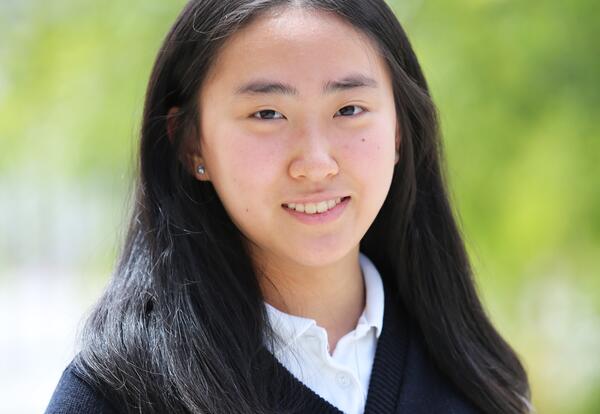
Senior Anna Yang was recently recognized as one of the top 300 scholars in the Regeneron Science Talent Search 2023, the nation’s oldest and most prestigious science and math competition for high school seniors. The Regeneron Science Talent Search scholars were selected from 1,949 applications from 627 high schools across 48 states, Washington, D.C., Puerto Rico and four other countries. Scholars were chosen based on their outstanding research, leadership skills, community involvement, commitment to academics, creativity in asking scientific questions and exceptional promise as STEM leaders demonstrated through the submission of their original, independent research projects, essays and recommendations.
Anna’s project was titled, Smart Bee Colony Monitor: Internet of Things Device and Fusion Convolutional Neural Network for Queen Assessment. “My project was inspired by my own experience as a backyard beekeeper, where I learned about queen failure, which is one of the leading causes of bee colony mortality and a widespread problem within the beekeeping community,” said Anna. “This is when the queen bee is unable to continue reproducing, or she dies and replacing the queen naturally is unsuccessful. Some beekeepers will introduce a new, purchased queen to the colony once a queen has died. However, the colony usually rejects her at first and must become familiar and accept her before she can be released, and the process involves guesswork from the beekeeper.”
“Through my research project, I developed a system that uses a custom IoT data-collection device and machine learning to determine queen presence and acceptance remotely. I used the device to collect 7.1k high-quality sound and quantitative data samples from my beehives in four categories: queenright (original queen), queenless, rejected queen and accepted queen. The data was then used to train two machine learning models, a convolutional neural network and fusion model, which resulted in a 91.8% accuracy for queen presence evaluation, demonstrating the potential for this system to be mass-produced for beekeepers worldwide.”